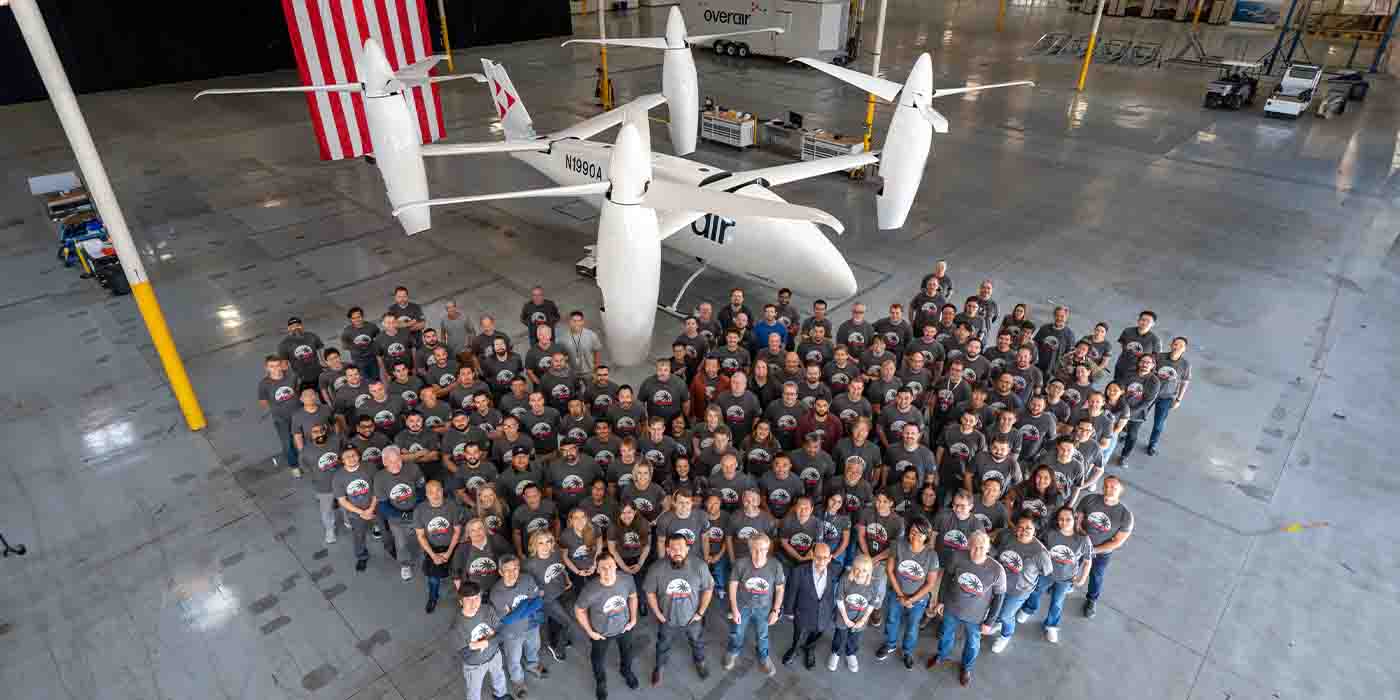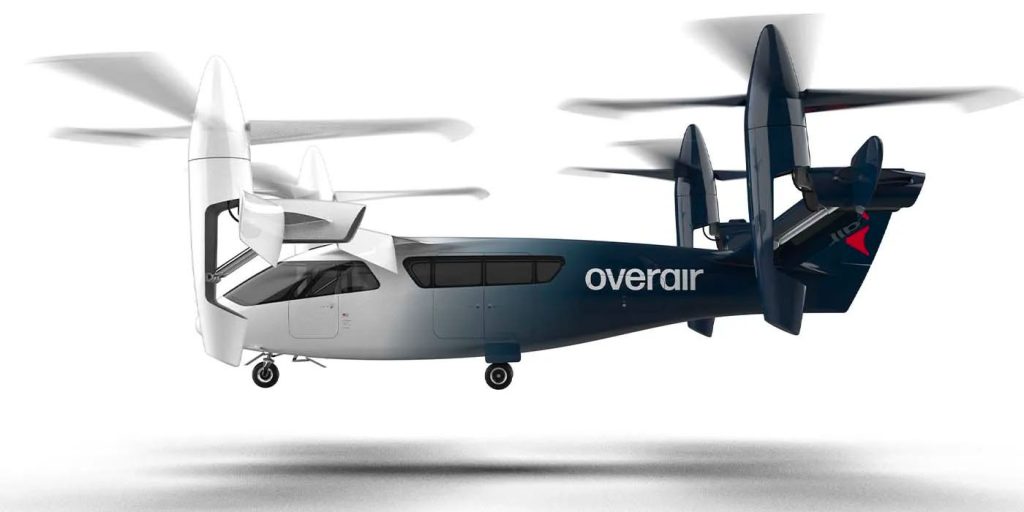
Advanced air mobility startup Overair is celebrating a significant milestone this morning, completing its first full-scale Butterfly eVTOL prototype ahead of flight testing in 2024. With its unique rotor design compared to many other eVTOLs, Overair’s electric aircraft looks to achieve commercial operations in multiple countries.
Overair is an advanced air mobility (AAM) specialist based in Santa Ana, California, that was spun out of Karem Aircraft in 2020. In three short years, the Overair team has combined decades of aerospace experience into a flagship electric vertical takeoff and landing (eVTOL) airfcraft called the Butterfly.
The Butterfly’s current design enables transporting up to five passengers plus one pilot, or 1,100 pounds of cargo. The eVTOL prototype has been advertised to achieve speeds of 200 mph, traveling approximately 100 miles on a single charge. Up until this point however, Overair had yet to build a full-scale version of the Butterfly.
That process really gained momentum in the summer of 2022, when Overair announced $145 million in funding to help get its Butterfly eVTOL into the prototyping stage ahead of actual flight testing.
Since then, we’ve seen the startup ink a letter of intent to sell up to 20 Butterfly eVTOLs in South Korea and two additional memoranda of understanding in Texas to help bring commercial EV operations to the northern region of the state.
Today, Overair has shared a vital progress update as it enters 2024 with eVTOL prototype testing on the schedule.

Overair eVTOL prototype complete, flight testing to begin
Following propulsion testing in 2022, Overair has officially assembled its first full-scale Butteryfly eVTOL prototype. When flight testing inevitably begins, Overair will finally take to the skies with two novel aviation technologies: Optimum Speed Tilt Rotors (OSTRs) and Individual Blade Control (IBC)Technology.
The company states that initial tests will validate the flagship eVTOL’s propulsion systems, flight control mechanics, safety features, and operational efficiency. The overall noise of the eVTOL (a huge factor in the future success of the segment) will also be assessed as Overair targets a noise level of 55 decibels. Overair CEO Ben Tigner spoke to the company milestone:
Assembling our first full-scale prototype vehicle marks the culmination of years of industry expertise, meticulous development planning, innovative engineering, and the hard work of the entire Overair team. This seamless transition from propulsion testing to a full-scale prototype underscores our dedication to redefining the eVTOL landscape with safer, quieter, and more reliable aircraft.
As the first eVTOL to arrive equipped with OSTR and IBC technologies, Overair’s Butterfly flight testing has some hype surrounding it. That process will begin in early 2024 with a vehicle-level testing phase at its Santa Ana headquarters, followed by more expansive flight testing at a facility in Victorville, California.
Looking ahead beyond flight testing, Overair says it already has its eyes on certified eVTOL operations and has garnered interest from both commercial and military customers. We will keep an eye out in 2024 and can hopefully share footage of the Butterly prototype taking its maiden flight.
